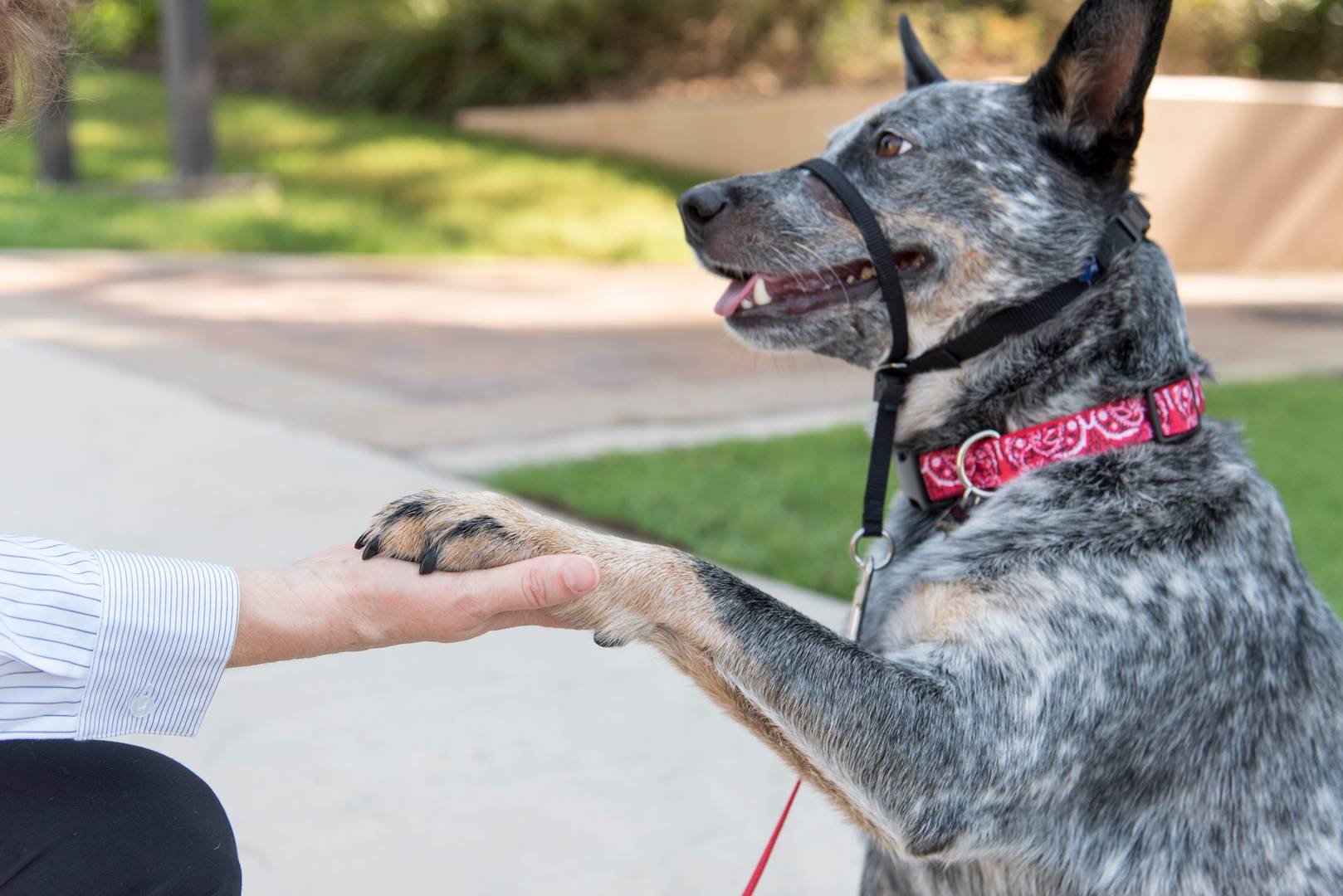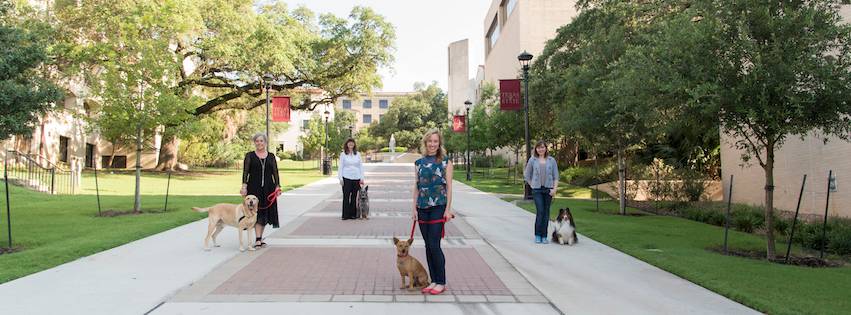Potential AAC Teams
Therapy Animals are Not Service or Emotional Support Animals
The AAC Academy does not train service animals or emotional support animals. Service animals are protected by the ADA and require comprehensive training and evaluation in order to perform a service for a person with a diability. If you'd like to learn more about service animals, you can review this article: Service Dog Training 101.
Emotional Support Animals (ESAs) are not protected by the Americans with Disabilities Act. Dr. Cynthia Chandler addresses helpful information and potential concerns related to ESAs in this article: Is There an Epidemic of ESAs?
What Makes a Good AAC Team?

The AAC Academy welcomes all graduate students and professionals interested in becoming an AAC team to apply to the program. However, it is important to consider a few things before initiating the application process. This page will focus on dogs, but know that make of these qualities and behaviors fit for other animals, as well. Also, please note that the Training page covers information about a prerequisite for the AAC Academy: all dogs must have a Canine Good Citizen (CGC) certificate prior to beginning the AAC Academy. This requirement is to ensure that dogs have mastered basic skills and teams are ready for more advanced training in AAC.
Qualities of a Good AAC Dog
AAC dogs are friendly and love meeting strangers. With proper socialization and training, they become well-mannered and focused on their handler (the counselor). AAC dogs are willing to work with people and be around other dogs. However, it is not enough that your dog loves people. There are many other qualities we are looking for in a dog that will be doing AAC:
- Has a good sit, down, and stay.
- Comes when called.
- Walks on a loose leash by their handler’s side… no pulling, lunging, or jumping.
- Can walk past or stand near another dog without being reactive or trying to get to the other dog.
- No barking while doing AAC work.
- Does not startle from loud noises or music, crowds of people, screaming children, large pieces of equipment, or people in hats or costumes.
- Will accept clumsy petting, friendly hugs, being tapped from behind, or people walking with a staggering gait.
- Remains calm and relaxed when feet and ears are examined.
- Will ignore food, toys, or medications on the floor.
- Takes treats gently when offered.
While some of the qualities listed above can be trained, some behaviors, such as reactivity to other dogs, are not a good fit for therapy work. If your dog demonstrates the following behaviors, she/he may not be suitable for AAC work:
- Aggression or reactivity toward humans, dogs, or other animals.
- Marked signs of fearfulness or anxiety.
- Lack of house-training.
- Uncontrollable hyper-activity (e.g., excessive barking, jumping, licking, or pawing).
- Medical concerns (e.g., seizures, advanced age, signs of discomfort, etc.).
The Other Half of the AAC Team
It is also important to remember the dog is only half of an AAC team. We are looking for counseling or mental health practitioners who:
- Love and respect their animals.
- Are willing to complete all three AAC Academy trainings.
- Use only positive training techniques.
- Are not rough or abusive in handling their dog.
- Can demonstrate good basic counseling skills.
- Are able to apply counseling theory to treatment interventions.
- Will follow the AAC Academy guidelines.
- Are willing to become ambassadors of animal-assisted counseling.
The AAC Academy wants to help you become a part of the wonderful world of animal-assisted counseling. We hope this information is helpful. We look forward to hearing from you and learning about your potential AAC animal soon!
